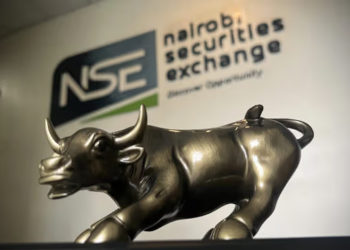The Retirement Benefits Authority (RBA) through the investment regulations and policies, provides investment guidelines on which asset classes retirement benefits schemes can invest in and the maximum limits. As such, the returns on investment differ from one scheme to another depending on the investments made and also the percentage of funds allocated to each of these investments. Additionally, each scheme has its own Investment Policy Statement (IPS) that outlines the investment principles and guidelines that are adopted by the Fund Manager on the asset allocation targets as well as the strategic considerations taking into account the scheme’s age liability profile. Some of the common asset classes that retirement benefits schemes invest in include:
- Government Securities – These are debt instruments that are issued by the national government to raise funds for government expenditure and to cater for the deficit in the national budget. These securities are classified into two; a) Treasury Bills – They are short term government securities that mature in one year or less, and, b) Treasury Bonds – They are medium term to long-term government securities whose maturity period exceeds one year. These securities offer fixed interest payments, known as coupons, every 6 months throughout the life of the bond while the principal is paid upon maturity. Treasury bonds are also traded in the secondary market where prices are determined by market movements,
- Quoted equities – These are shares of a company that is listed on the Nairobi Securities Exchange (NSE), such as Safaricom or Equity Group shares, and represent ownership of the company. Retirement benefit schemes earn returns through capital gains when the share price appreciates and dividend payments declared by the company invested in,
iii. Immovable property – These refers to investment in real estate properties such as land and buildings which offer investors the chance to get long-term, stable and attractive returns that also provide a hedge for inflation. Due to the long term and illiquid nature of these asset classes, immovable properties are suitable for schemes whose members are not close to retirement age. This enables the schemes to grow their funds faster and the illiquidity of these assets will not be a huge issue as members are not close to the retirement age. Retirement benefits schemes earn from capital appreciation when they sell the property or from the revenue generated from renting or leasing of the property,
- Guaranteed funds – These are investment products provided by insurance companies that guarantee a predetermined minimum rate of return, capped at a maximum of 4.0%. If the fund generates returns higher than the guaranteed minimum rate, part of the excess is set aside as a reserve to cover periods when market performance falls below the guaranteed rate. The remaining portion of the excess returns is distributed to pension scheme members, subject to the discretion of the approved issuer,
- Fixed Deposits – These are investment instruments offered by banks as well as non-banking financial companies that offer guaranteed interest rates which are paid together with the principal amount at the end of an agreed period of time. Retirement Benefit Schemes invest in Fixed deposits as they are low risk investments and are highly liquid, and,
- Listed corporate bonds – These are medium term to long term debt instruments issued by companies listed in the security exchange markets to cater for the financing of a company’s project. The retirement benefits schemes are paid a pre-established number of interest payments at a fixed rate and also have the option of trading the bonds in the secondary market and gain from price movements.
In conclusion, it is important for a fund manager to do thorough research before making a decision on where to invest. This will ensure that the retirement benefit scheme is adequately liquid, compliant with the law and members saving are safe and generate returns. Members should also know the portfolio mix of different Retirement Benefit Schemes before they decide on which scheme to join. This will help one assess the risk profile of the scheme and evaluate whether the risk profile is within one’s threshold of risk tolerance.


















